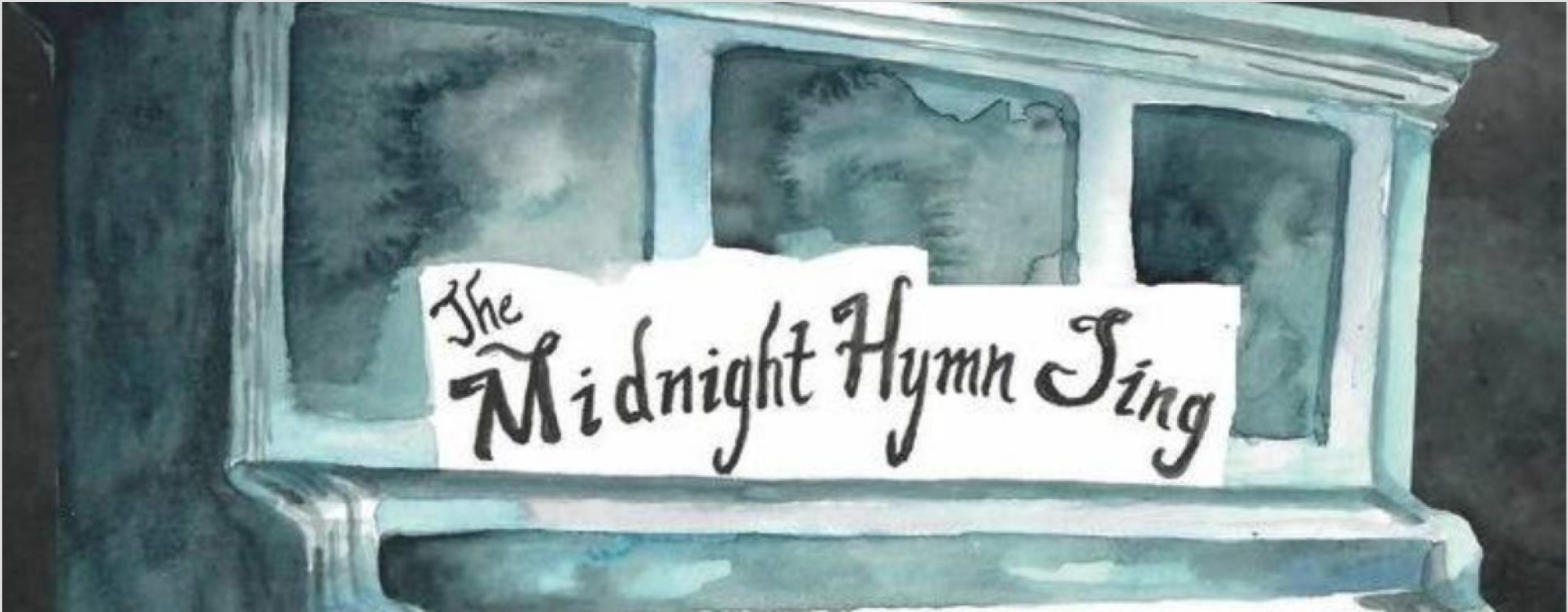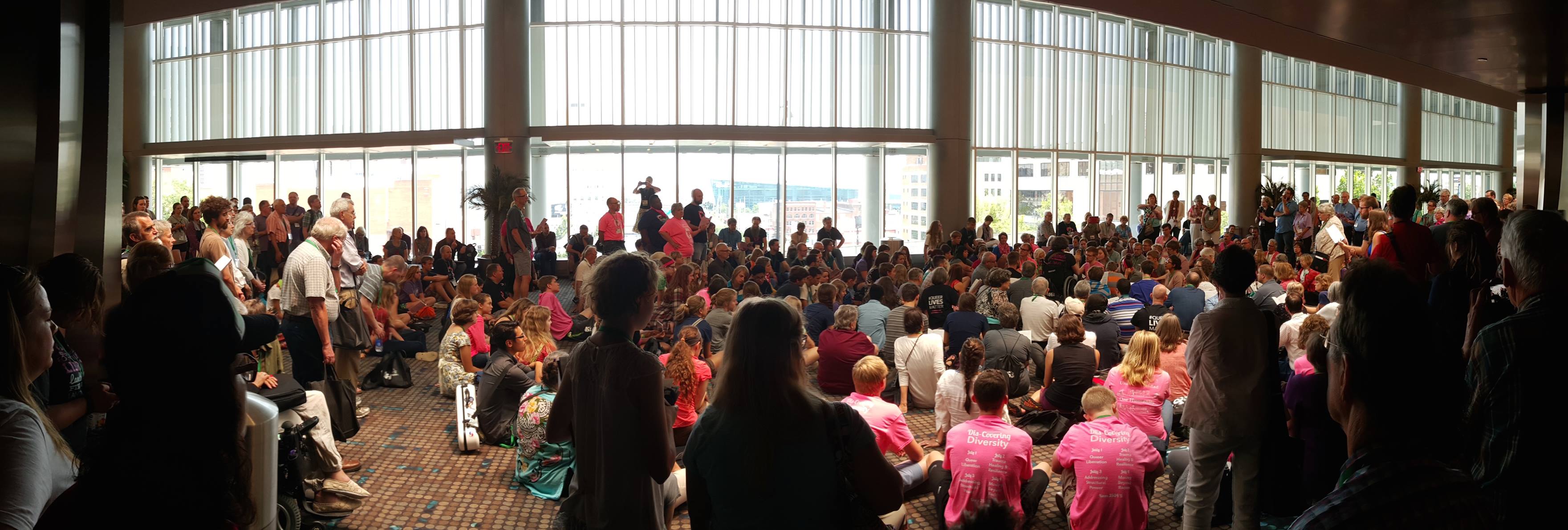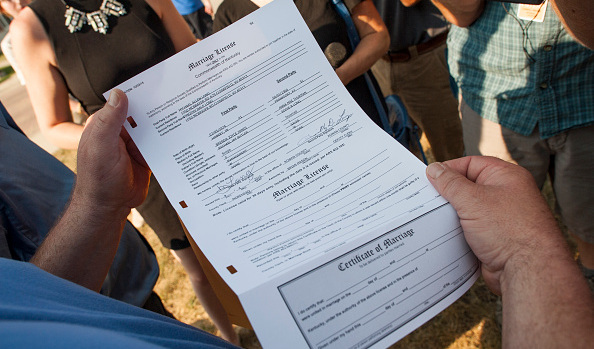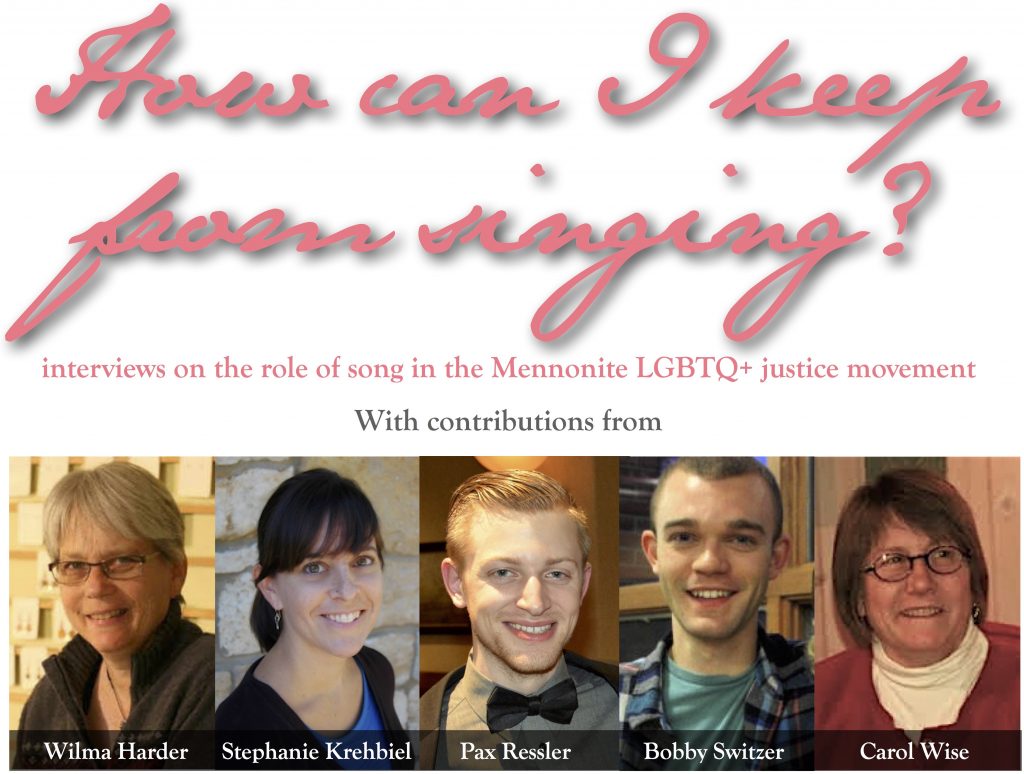FOR IMMEDIATE RELEASE, 7/2/2015, PINK MENNO, CONTACT: MATT DEAN (717) 802-2070
IN SEPARATE ACTIONS, PINK MENNO DE-PINKS DELEGATE SESSION; TAKES STAGE AS MCUSA DELEGATES PREPARE TO VOTE
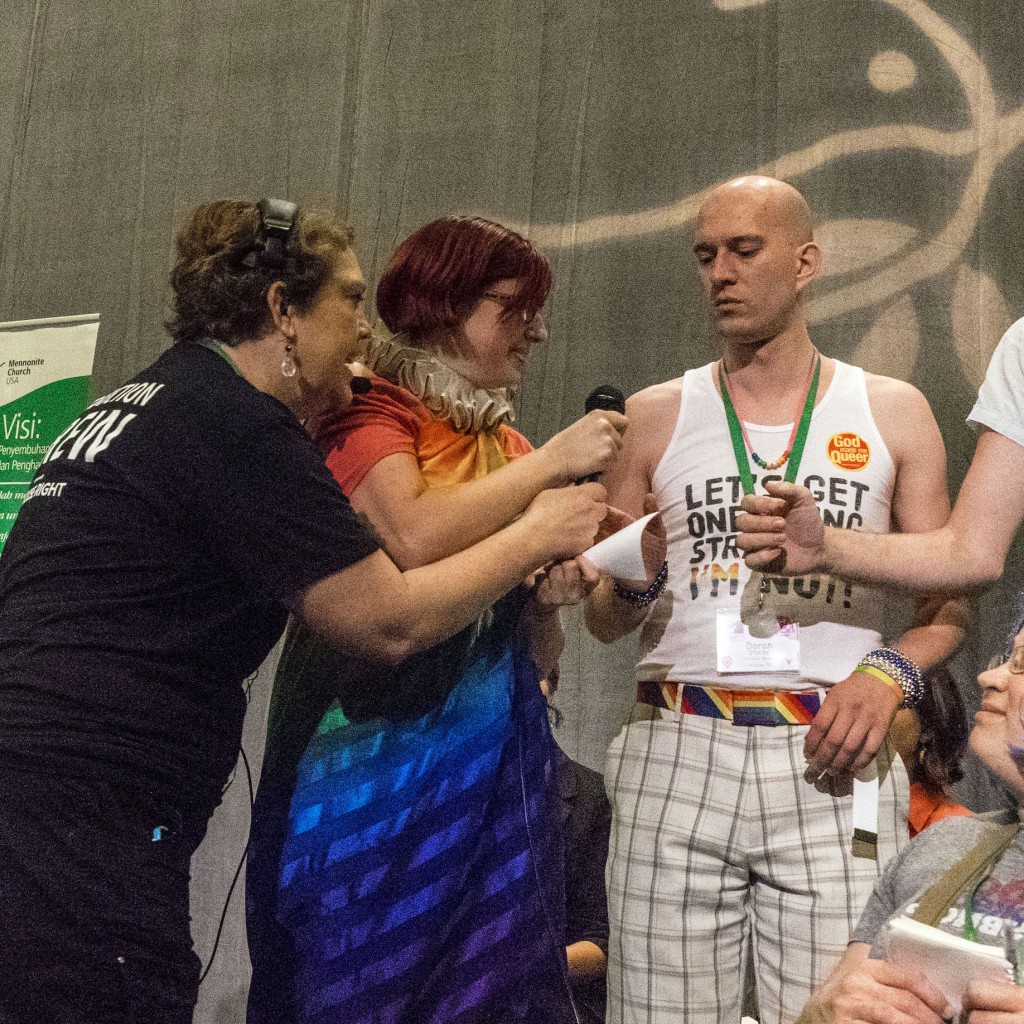
Mennonite Church USA Convention staff member Sue Conrad tries unsuccessfully to take microphone from Pink Menno actors performing satirical theater piece.
Members affiliated with Pink Menno held two actions on Thursday morning, July 2, 2015 at the Mennonite Church USA (MCUSA) delegate session in Kansas City, MO. These actions highlighted the lack of representation in Mennonite church processes by those most impacted by today’s resolutions: lesbians, gay folks, bisexuals, trans folks, and queer folks (LGBTQ people).
Both actions pointed to the injustice of church processes that for decades have excluded and marginalized the LGBTQ community and our allies. While each resolution will be discussed by delegates today on its own merits, our message is that the entire process is flawed and does not represent LGBTQ Mennonites because it has not included LGBTQ Mennonites from the beginning. We will not be complicit in our own oppression. The advocacy work of the movement for inclusion of LGBTQ people will continue whether these resolutions pass or fail.
Invitation to De-pink
At the conclusion of the Pink Menno hymn sing, Pink Menno asked our supporters who were wearing Pink in the delegate assembly to wear garbage bags as a way of de-pinking the delegate assembly, a visual representation of the silencing LGBTQ folks. Below is the statement supporters received along with garbage bag.
“The very documents upon which MCUSA was founded mandated the exclusion and diminishment of LGBTQ lives. Shoring up, or making minor adjustments, will not fix the cracks that are inherent in a foundation built upon unjust structures. The unity the church seeks will not be realized by continuing to scapegoat LGBTQ lives. As Pink Menno, we cannot give consent to what is at heart an illegitimate undertaking.
Today we de-pink the delegate session to symbolize our rejection of a flawed and violent process.”
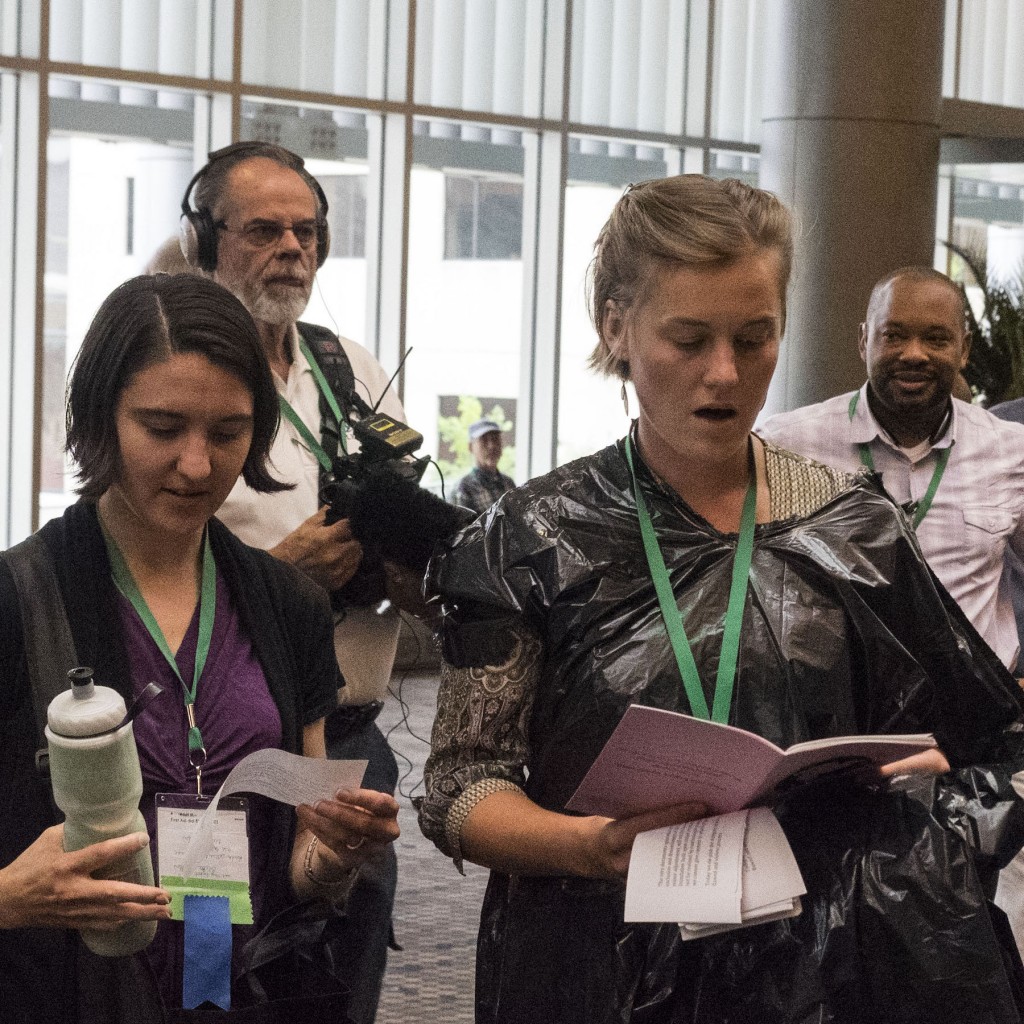
Members of the Mennonite USA and Pink Menno supporters wear garbage bags during the hymn sing outside the delegate assembly, symbolizing the de-pinking of the delegate assembly, a visual representation of the silencing LGBTQ community.
Satirical Theater Piece
Individuals affiliated with Pink Menno took the stage on Thursday to hold a theatrical mock vote satirizing MC USA’s historic pattern of voting, to block LGBTQ people from participation in the church. Indicating their unanimous “No” vote with a dance of the Hokey Pokey, they voted down a resolution barring individuals “struggling with opposite-sex attraction at variance with the Mennonite Confession of Faith,” stating “we trust our beloved community members to make ethical and faithful sexual choices.” During their three minute performance, there were shouts from the delegate floor, and an MC USA staff member attempted to wrest the mic from a performer’s hand.
“For the past 30 years, MC USA has been kicking the can down the road – the can being queer people. As we prepared for today’s resolution, we knew we had to point to the absurdity of our Mennonite community, gathered in the liberating love of Christ and committed to peacemaking, continuously insisting on voting on the worth of our bodies,” said Jennifer Yoder, who performed the role of convener.
“This may have been the first time a resolution explicitly addressing straight sexual behavior was brought to the delegate floor,” added Yoder.
Full text of the mock “resolution”:
“Because we as Mennonites believe in clear boundaries and tall fences to keep out any abominations in the eyes of God:
We heretofore resolve that those struggling with opposite-sex attractions at variance with the mennonite confession of faith will not be recognized for their membership or ministry in the life of the church.
All those in favor will be asked to say “Aye”!
Those opposed, please do the Hokey Pokey and turn yourself about. “


